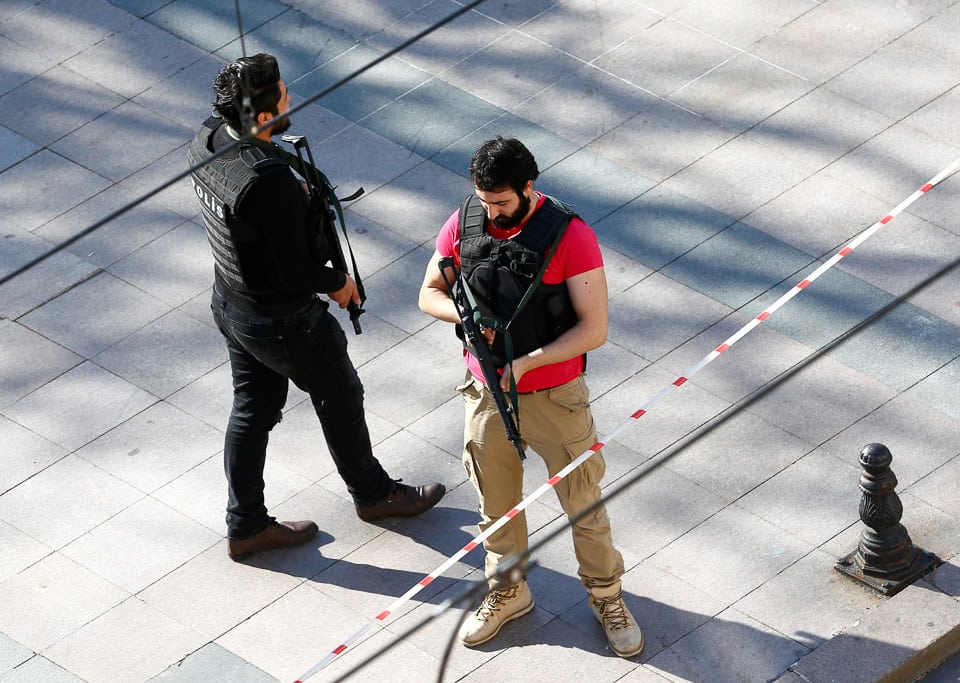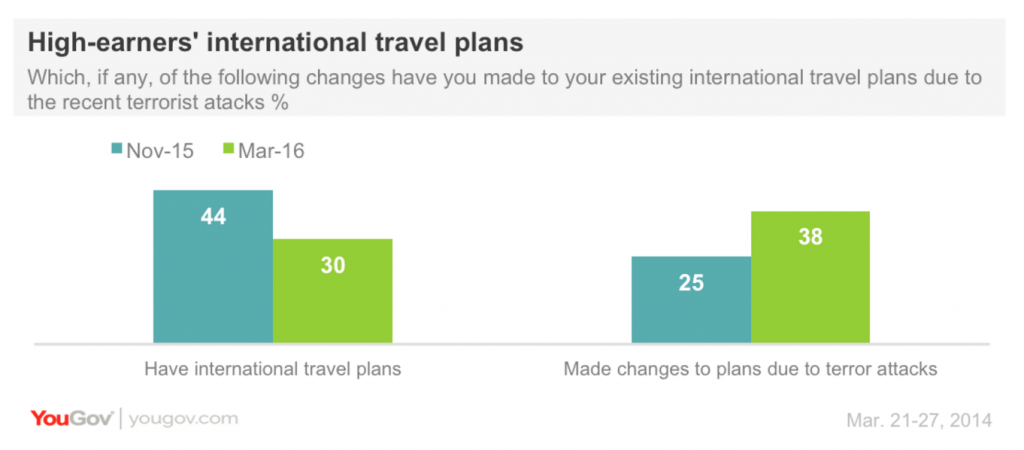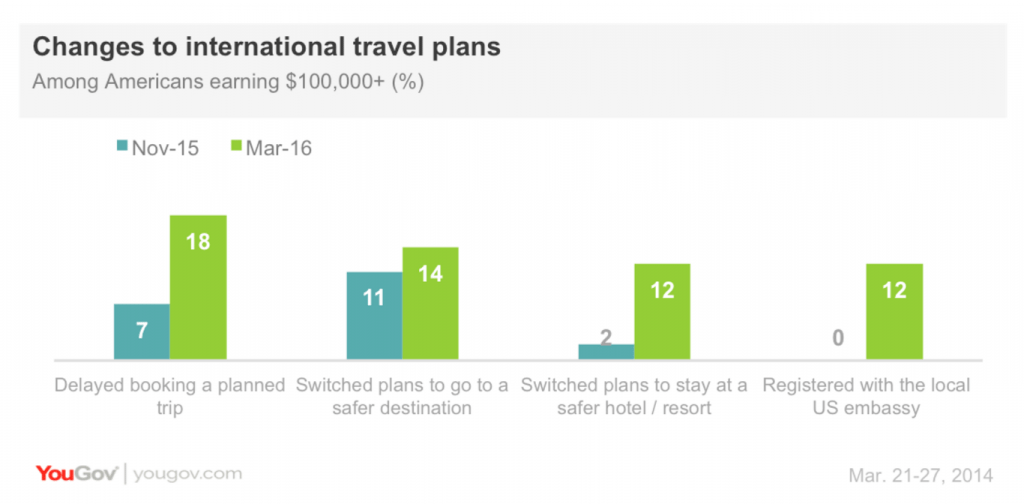Skift Take
Rather than outright canceling their international trips, many U.S. travelers of all income levels have decided to change destinations or even hotels to alternatives that make them feel safer after multiple terrorist attacks in Europe and the Middle East.
A higher percentage of affluent U.S. travelers have cancelled international trips since the Paris terror attacks in November than less well off groups, while a greater percentage of middle income travelers changed their travel plans.
A YouGov survey of U.S. travelers with international travel plans as of March 2016 found 12 percent of affluent travelers cancelled their trips compared with nine percent of travelers who earn less than $40,000 per year and seven percent who make $40,000 to $80,000.
The survey polled more than 1,000 U.S. travelers online in the week following the Paris attacks in November and the week following the Brussels attacks last month. The survey considered budget travelers (those earning less than $40,000 per year), middle income travelers (those earning $40,000 to $80,000 per year) and affluent travelers (those earning more than $100,000 per year).
More than half of middle income travelers with international trip plans as of March 28 changed their trips, from switching to a “safer” destination to purchasing travel insurance. Middle income travelers were also the highest percentage that said they feel it’s unsafe now to travel outside the U.S. (65 percent), compared to 54 percent of affluent travelers with this view. About 38 percent of affluent travelers made changes to trip plans (see Chart 1 below for the breakdowns).
While not exclusively related to safety concerns or terrorism, AccorHotels, which has a heavy presence in Europe, has felt some impact from U.S. and other international travelers during the first quarter, according to Accor’s first quarter 2016 Securities and Exchange Commission filing.
AccorHotels’ overall revenue per available room (RevPAR) for its midscale and economy hotels was down 0.4 and 0.3 percent year-over-year for the quarter, respectively, while overall RevPAR for luxury hotels was up 1.5 percent. But RevPAR across all of Accor’s segments were down in France and other segments across Europe had year-over-year decreases. Accor’s luxury hotels actually had a 10.1 percent increase over the first quarter of 2015 in the Americas.
Chart 1: Affluent travelers are more likely to have international trip plans due to the often higher cost of international travel. Middle income travelers were the highest percentage that changed their destination, and budget travelers were the highest percentage changing their hotel or resort. Middle income travelers were also the highest percentage to purchase travel insurance following the attacks.
U.S. Travelers With International Travel Plans in March 2016
| Less Than $40K | $40K to $80K | $100K or More | |
|---|---|---|---|
| Have International Travel Plans | 17% | 19% | 30% |
| Made Changes to Travel Plans | 49% | 54% | 38% |
| Delayed booking a planned trip | 14% | 13% | 18% |
| Switched plans to go to a safer destination | 16% | 23% | 14% |
| Switched plans to stay at a safer hotel/resort | 17% | 12% | 12% |
| Canceled a booked trip | 9% | 7% | 12% |
| Registered with the local U.S. embassy | 4% | 3% | 10% |
| Purchased travel insurance | 10% | 24% | 15% |
| Something else | 6% | 5% | 4% |
| Not applicable – I have made no changes to existing international travel plans | 51% | 46% | 62% |
| Not applicable – I do not currently have any existing international travel plans | 0% | 0% | 0% |
Chart 2: While this chart shows a 14 percentage point decrease in U.S. affluent travelers with international travel plans from when they were surveyed in November to the March survey, the results have multiple implications.
“We attribute this to the different season (holidays versus late-winter plans), but it’s possible that some of the drop was due to people not wanting to travel internationally due to terrorism or other reasons,” said Chandler Mount, director of YouGov.
Chart 3: Hearing of two terror attacks in two popular European cities was enough for affluent travelers to make significantly more changes to their trip plans after the Brussels attacks compared to the week after the Paris attacks. Registering with the local U.S. embassy saw the largest jump and delaying a booking was just behind that.
Source: YouGov
The Daily Newsletter
Our daily coverage of the global travel industry. Written by editors and analysts from across Skift’s brands.
Have a confidential tip for Skift? Get in touch
Tags: accor, luxury, terror attacks
Photo credit: Police secure the area after an explosion near the Ottoman-era Sultanahmet mosque, known as the Blue mosque in Istanbul, Turkey January 12, 2016. Murad Sezer / Reuters


